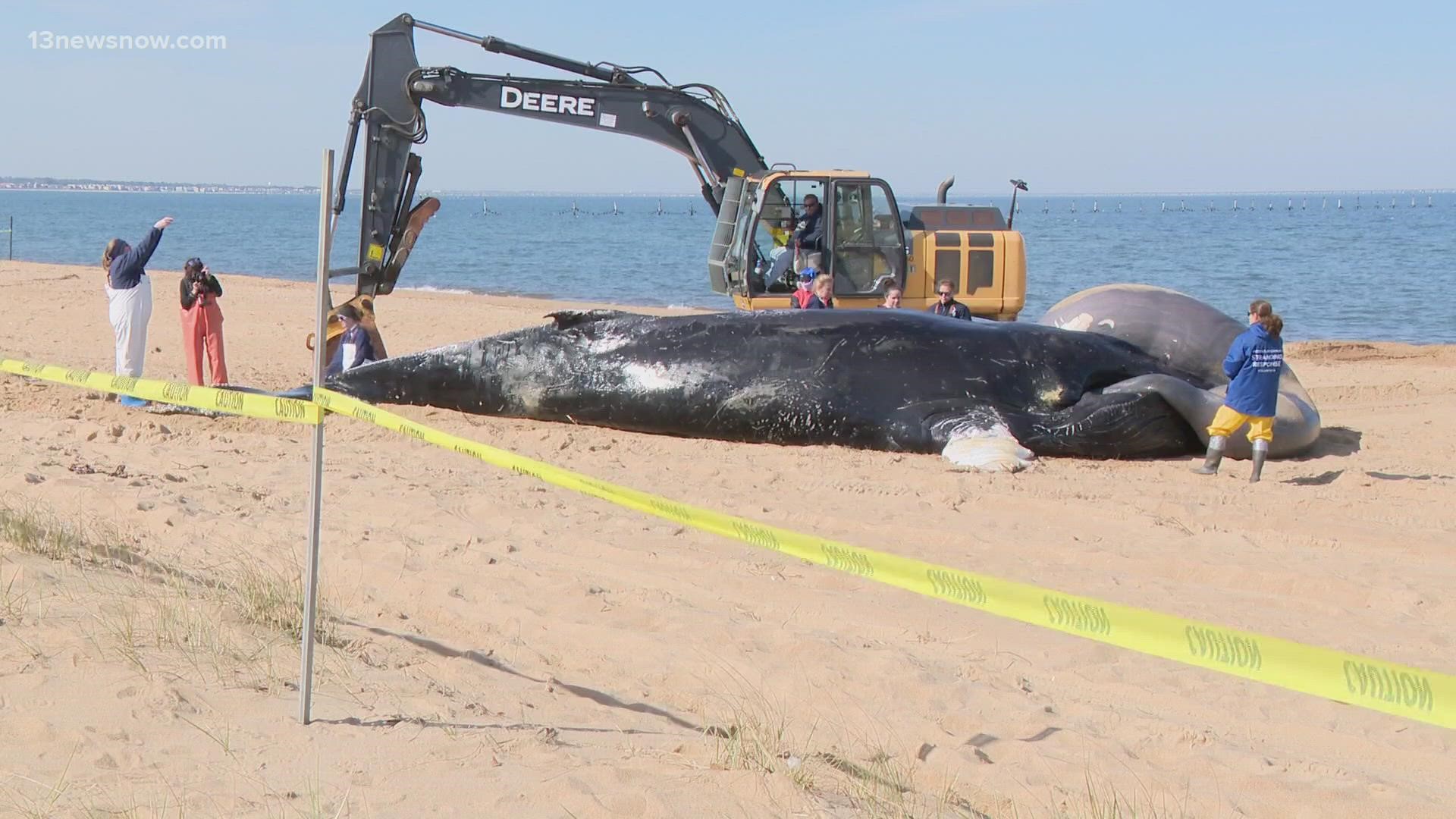VIRGINIA BEACH, Va. — The Virginia Aquarium’s Stranding Response team is investigating a second whale death in Hampton Roads this year.
Crews pulled a young humpback whale ashore on Wednesday near First Landing State Park in Virginia Beach.
“We were driving and smelled an awful smell, then we came here and found it,” said Joe Harris. “It’s just very interesting.”
A curious crowd gathered to watch the team in action.
"What they are doing is just like CSI, expect with dolphins and whales,” said spectator Mark Swingle, who used to work with the stranding response team.
“We do it with sea turtles as well, by the way, but it is really important because we are the first line. This is how we find out what happens to the animals out here in the wild.”
Caryl Thompson with the Virginia Aquarium said crews with the U.S. Coast Guard, Virginia Beach Police Department and Virginia Beach Public Works brought the whale ashore after someone spotted it floating near the mouth of the Chesapeake Bay.
“The mouth of the Chesapeake Bay is a great place for fish to be coming out of the waters and a great place for hungry humpback whales and finback whales to be getting their food sources,” said Thompson. “So, we do see whales seasonally here in the wintertime. We prefer to see them swimming than in this condition.”
Since December of last year, the National Oceanic and Atmospheric Administration has recorded three humpback whale strandings on the East Coast, two in Virginia and one in Maryland.
“We did respond to another humpback whale that was deceased in January,” Thompson said. “That one was over in the Craney Island area of Portsmouth.”
NOAA has researched humpback whale mortality rates across the East Coast since 2016. The group found in some cases, the whales showed evidence of getting hit by a boat.
In the case this week, Thompson said there were no obvious signs of recent entanglement or interactions with ships.
On Wednesday, crews examined the whale externally, then internally, with help from a crane. Thompson said the whale was in a state of decomposition, which made it difficult to assess any potential internal injuries.
A variety of samples were collected for analysis, but getting results back will take some time. So, it may be a while before we know how the whale died.
After the necropsy, aquarium employees buried the whale's remains on the beach, near the dunes.
Swingle said crews are constantly learning from these gentle giants.
“We never lose that fascination for seeing these majestic animals,” he said. “This is really how we know all about them, their biology, what they feed on, all of that you get from examining an animal like this.”

